Table of Contents
As Artificial Intelligence is invading more and more spheres of our lives, the question “Will AI take away my job?” becomes more acute every year. AI-powered machines already do certain jobs better than people (i.e. data processing) so it’s a matter of time before they become even more skilled. And when this time comes, will there be any job for us at all or will we become simple observers?
While there is no definite answer to the question, we can use the current technological state to analyze the possible progress and development of AI and how far it might go. Without further ado, let’s get started.
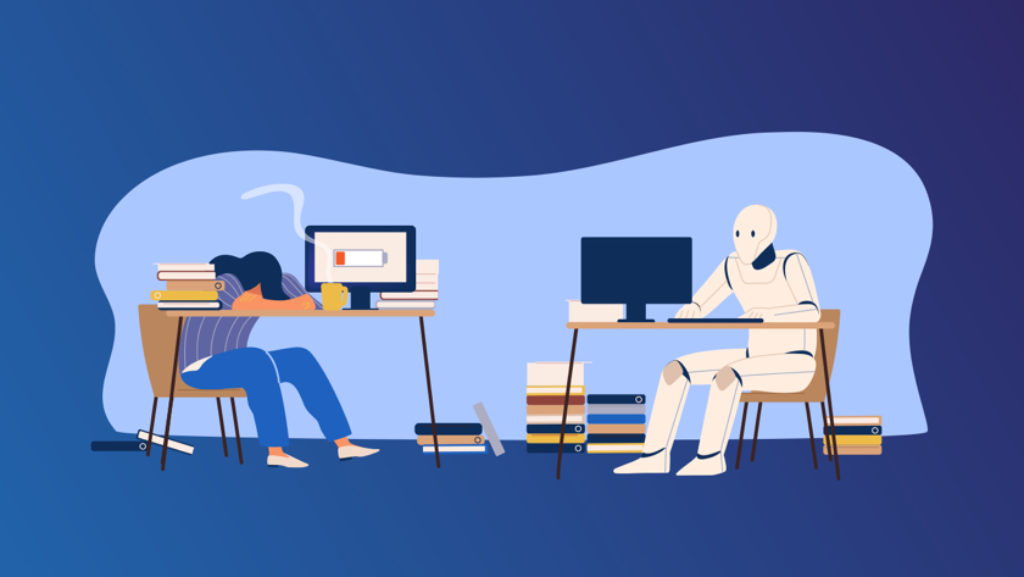
The current AI situation
We’ve seen a tremendous rise in AI adoption when the COVID-19 pandemic hit and made companies rethink their strategies. As the PwC study states, 52% of companies accelerated their AI adoption due to the COVID and 86% of respondents stated that AI would become a mainstream technology in their company in 2021.
Now let’s talk about the biggest AI use cases across various industries – after all, we need to know what kind of jobs are already taken (fully or partially) by Artificial Intelligence. According to the McKinsey study, the biggest AI use cases in 2021 were:
- Service-operations optimization
- AI-based product enhancements
- Automation of contact centers
- Predictive service and intervention
- Customer-service analytics
- Risk modeling
- Fraud and debt analytics.
As you see, AI is mostly involved in analytical tasks and automation though it’s slowly becoming capable of more sophisticated tasks such as communication with customers or even the creation of art. This, indeed, puts many jobs at a risk to be taken away by this technology but before making any assumptions, it’s important to understand why AI takes over jobs in the first place.
Reasons why AI can do certain jobs better
“Can a robot write a symphony? Can a robot turn a… canvas into a beautiful masterpiece?”
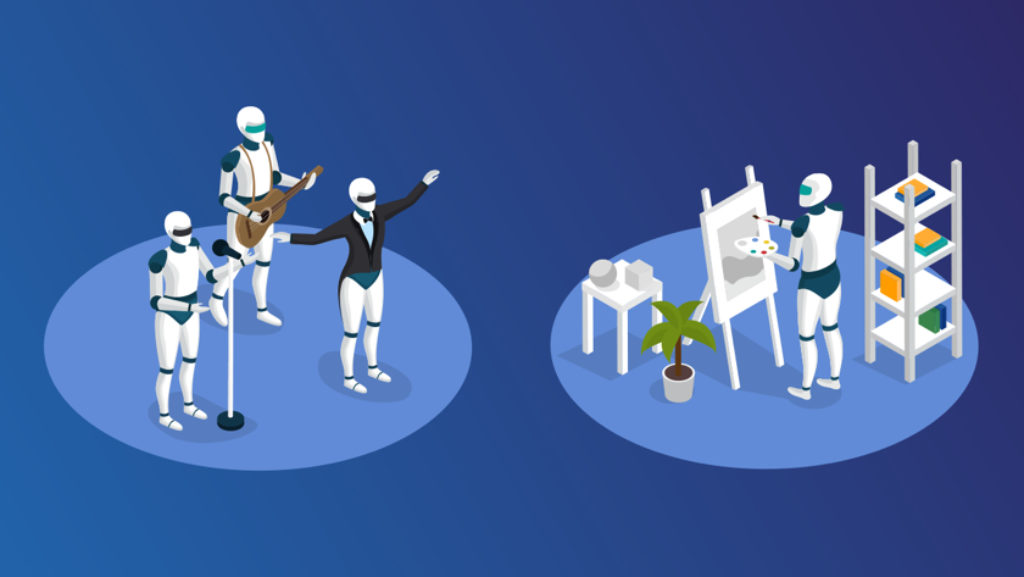
For now, no, AI-powered robots cannot write symphonies or create fine art on the same level as us. But what they definitely can do better is perform calculations, analyze data, work in dangerous environments, and the list actually goes on. So in order to understand what kind of jobs might soon become fully automated, we need to understand what AI skills that match the requirements for a certain job.
Speed and accuracy of work
Speed and accuracy of work are probably the biggest advantages of AI over people in certain use cases. When it comes to complex calculations, data processing, or performing mechanical tasks (i.e. manufacturing), robots display an outstanding level of performance since they are specifically designed to do so.
We can take the drug research industry as an example. Before the introduction of AI, it would take years to come up with a new drug and test it. These days, the process is significantly accelerated by the use of ML since this technology can analyze massive amounts of data much faster than human researchers.
Error reduction
Since machines are programmed to do certain tasks, it is impossible for them to step back from this task, get distracted, or perform a different action. This results in a result with a minimal number of errors which is often impossible to get from human employees. There is always a “human error” factor present when people do their job and we should not overlook it when realistically estimating whether an AI is a better option for specific tasks.
5 jobs that AI might take over
We’ve talked about the qualities that let AI take over jobs – now it’s time to actually list these jobs down and explain why they are on the list.
Accounting
Bookkeeping is an insanely tedious process that involves a very high level of concentration and accuracy from an accountant. And since accounting does not require high emotional or social investment but requires working with large amounts of data, this job seems like a perfect one for an AI.
Customer service
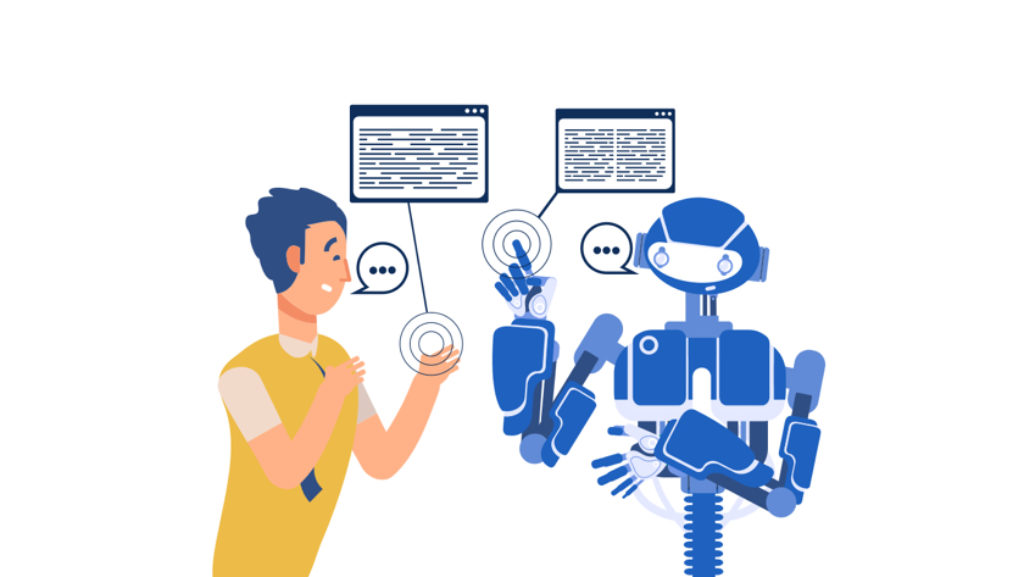
Chatbots are already here and helping businesses across all industries to manage their customer support in a fast and efficient manner. So it will come as no surprise that this process might become fully automated in the near future. In fact, if you check the “Will robots take my job?” website, you’ll see that customer service representatives are at 86% risk of automation.
Telemarketers
Another job that scores even higher on “Will robots take my job?” is telemarketing. While it involves interaction with customers, it does not require a very high level of emotional intelligence, and conversion rates from direct phone calls are pretty low. Therefore, this job will most likely be automated and human employees will be able to focus on more sophisticated marketing tasks.
Proofreading
Here is an important thing to remember: proofreading is not the same as editing. Editing requires more complex skills since an editor needs to check the tone of the text, ease of its comprehension, and correspondence to the audience. Proofreading, on the other hand, is about spotting errors and inconsistencies and that’s something that a robot can easily do (and already does, if we take Grammarly as an example).
Market researchers and analysts
Since AI is perfect for analytical jobs, market research analysis is in the top jobs that will most probably be replaced. Even though this job has a significant role in planning marketing strategies, it’s all about gathering and processing information with an aim of generating valuable insights – and that’s something a robot can definitely do.
The skills that AI has not yet mastered (and why)
So we’ve talked about skills that AI excels at – what about the ones that it has yet to master?
We are talking here about very “human” skills that all of us have since birth and that are actually impossible to be taught. Empathy, emotional intelligence, intuition, creativity – all that can be found in any human being. Our emotions are generated by different networks in our brains – add to that a unique psychological portrait of any person and you’ll get a full range of rich and individual emotions.
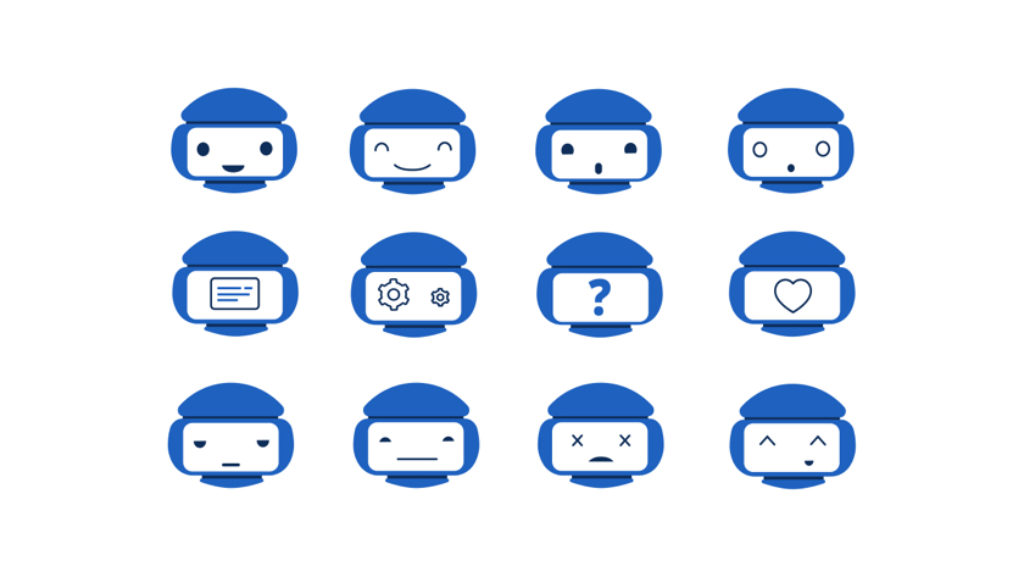
Now, a machine can be taught to think: meaning, it can draw conclusions from certain dependencies and establish relationships between different data pieces. It can do analytical thinking (like Sherlock Holmes, “the most perfect reasoning and observing machine that the world has seen”) but it’s not capable of producing emotions simply because it does not have a human brain. As a result, AI is far from mastering certain jobs that require a high level of creativity, empathy, or EQ – we’ll list them down below.
Writers and marketers
Even though AI is already generating a relatively cohesive copy, it still feels unnatural when reading it. The thing is, writers and marketers know how to relate to their readers, how to manipulate readers’ emotions via correctly selected words, and how to evoke certain feelings with a marketing campaign. And since we are talking about feelings here, this is something that humans have absolute control over.
Software developers
Listen, somebody has to come up with new ideas on technological progress and actually create AI, right? Sure, robots can do certain things like assembly or calculations but the initial idea, the sparkle of creativity, if we might, is something that robots cannot come up with because it goes beyond their abilities. Plus, despite the growing popularity of low coding, there is a huge array of complex programming tasks that only people can perform.
Graphic designers
This one does not even need an explanation (but we’ll explain anyway). Same as writers, designers interact with people via visuals and these visuals help evoke certain emotions that later lead to conversions or interaction with a product. Hence, one needs to have a good understanding of how the human brain functions and reacts to colors and shapes (and more) to assemble a convincing message from all available visual components.
Chief executives and managers
In order to successfully manage people, you need to understand how they behave, what factors impact their actions, what motivates them, and the list goes on. In addition, a good executive usually has this specific “intuition” or an EQ skill that helps understand people and what’s going on through their heads. By default, a machine is not capable to comprehend that so naturally, an AI can never become a chief executive or a project manager.
Lawyers
Lawyers often have to look at things from a different perspective in order to fully comprehend the situation and come up with a convincing argument in favor of their clients. Machines are too straightforward for such thinking and are not capable of independent thinking that differs from the pattern that they were programmed to follow. Hence, lawyers remain safe for now – though who knows in what kind of an apocalyptic cyber-punk future we’ll be living in the future?
So is AI a blessing or a curse?
Before panicking about the possibility that AI takes over jobs and interferes into all spheres of our lives, don’t forget that the extinction of certain jobs is a natural thing that occurs over a course of time. Log drivers, human alarm clocks, lamplighters, and elevator operators – all these jobs were in high demand in their period of time but with technological progress, they simply were not needed anymore. The same thing happens today: as technology advances, we don’t need people in certain jobs and that’s okay.
On the other hand, what can people do if their job is at risk of being taken away by Artificial Intelligence? The main piece of advice here is to skill up and increase their own competency and proficiency in order to work with more sophisticated tasks. For example, one can complete managerial courses or learn a new skill that’s related to their current position. In this way, you’ll stay safe from being replaced by an AI-powered robot – though it might not be a bad thing, after all.
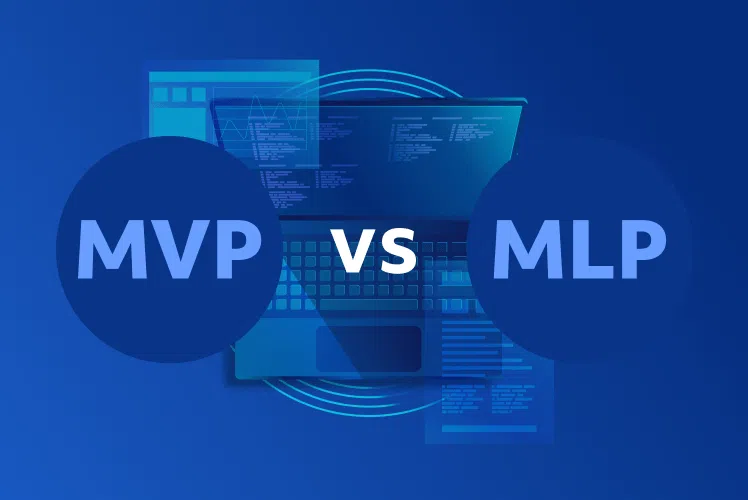
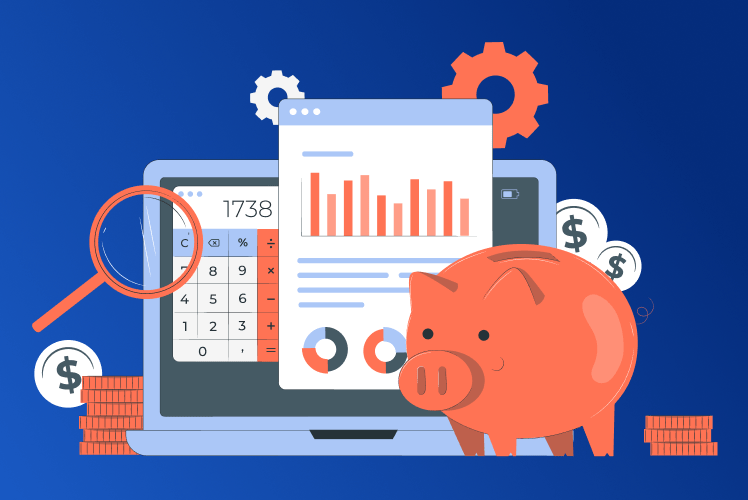

Comments